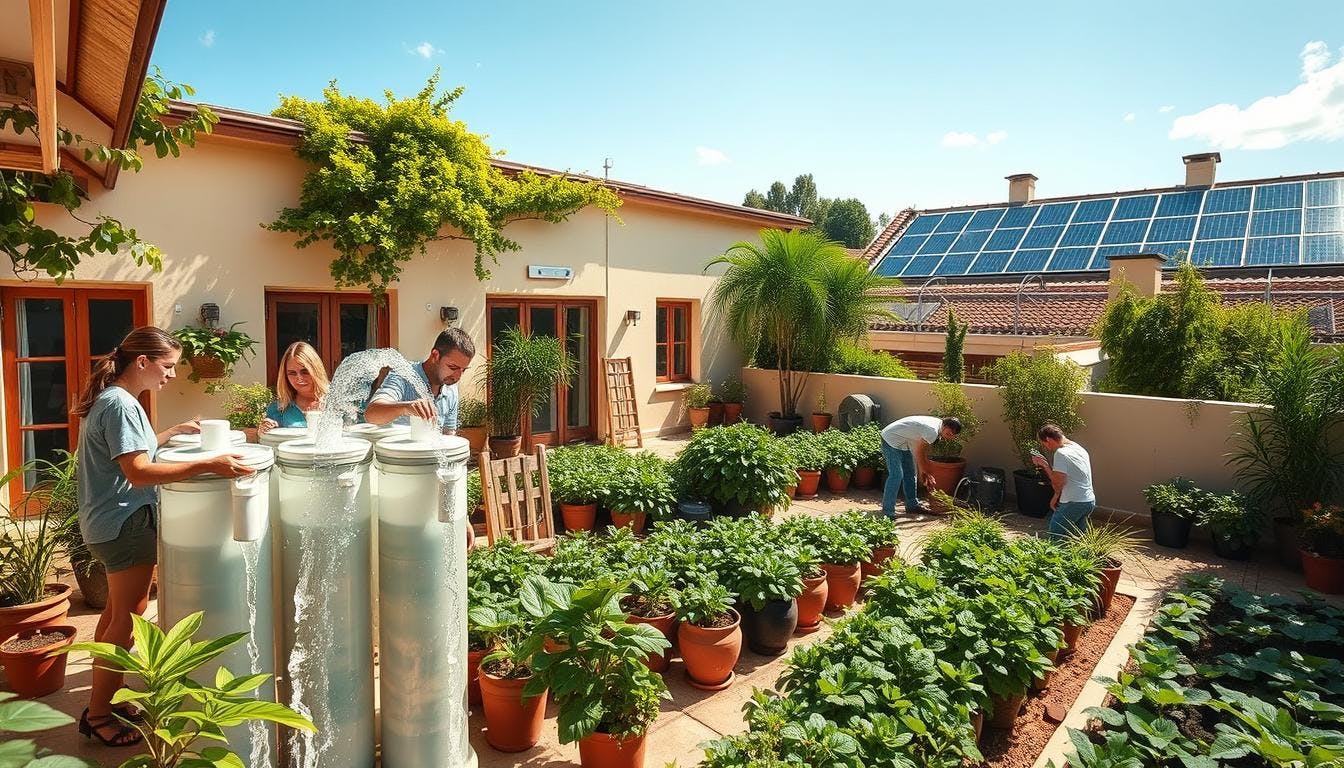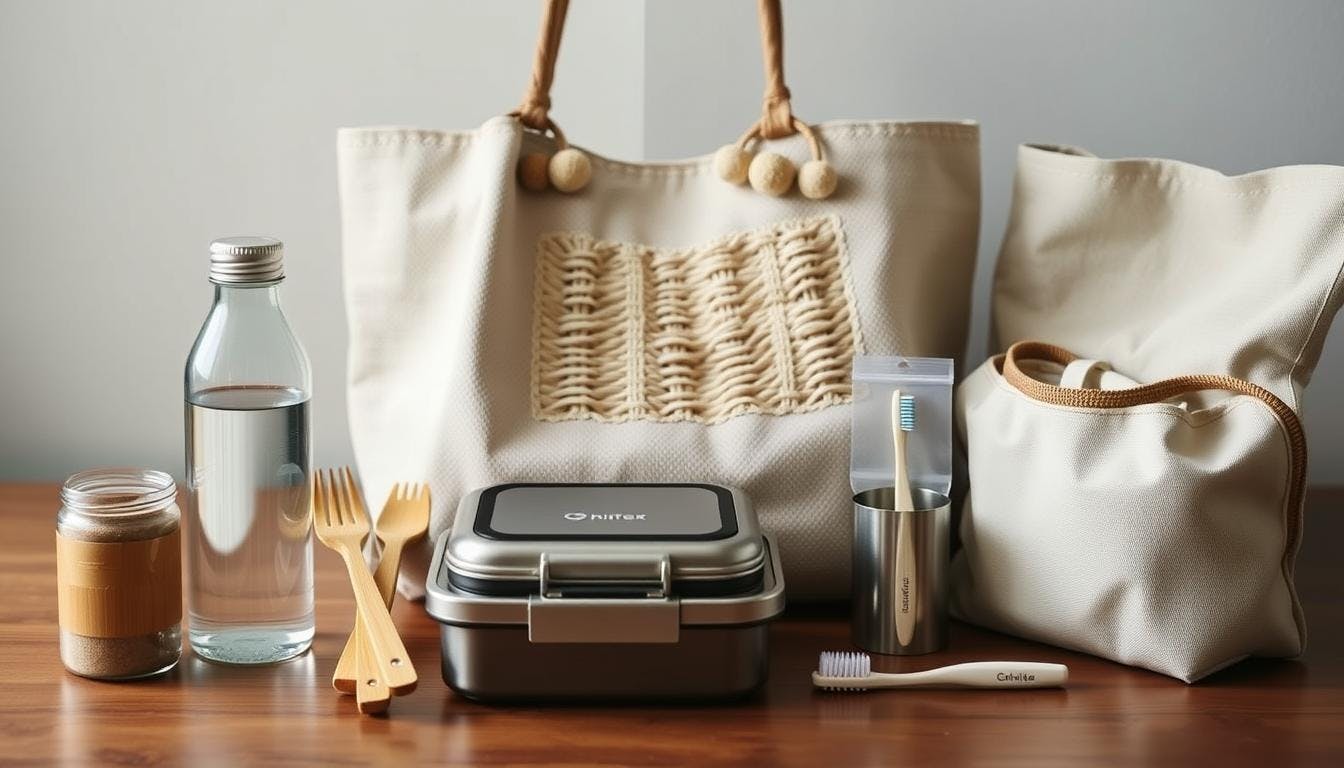Sign up. Be inspired. Get clicking.
Zero waste travel accommodation options
29 April 2025
More travellers are now seeking sustainable accommodation options to reduce their environmental footprint. According to a Booking.com survey, 81% of respondents prefer lodging that prioritises sustainability. This shift reflects a growing awareness of tourism’s contribution to issues such as plastic pollution and carbon emissions.
Hotels and holiday rentals are responding by phasing out single-use plastics, introducing reusable amenities, and implementing energy-saving technologies. These initiatives enable guests to lessen their carbon footprint without compromising on comfort.
Choosing accommodation with sustainability initiatives supports broader efforts to preserve the natural environment. Small choices, such as opting for reusable toiletries or participating in linen reuse schemes, collectively create meaningful change. As the tourism industry continues to evolve, it is helping to safeguard the planet while still offering unforgettable experiences for travellers.

Why zero waste travel accommodations matter
The hospitality sector is undergoing significant changes to reduce its environmental footprint. Measures such as installing bulk toiletry dispensers have substantially cut plastic waste; for instance, 4ocean reports that initiatives like these help prevent over 200 million plastic bottles from entering the environment each year.
Leading hotel groups are setting the standard. Six Senses Hotels have eliminated single-use plastic bottles entirely, while Marriott and Hilton have phased out plastic straws across their global operations, preventing millions of straws from reaching the oceans annually.
Traditional tourism is responsible for approximately 4.8% of global carbon dioxide emissions. Accommodation providers with a focus on sustainability help address this impact through energy-efficient construction, renewable energy use, and waste reduction initiatives. According to a WeTravel survey, 76% of travellers now prioritise sustainability when selecting where to stay.
Innovative building practices further support these efforts. Some hotels incorporate reclaimed wood, install solar panels, and adopt other low-impact materials. Certifications such as LEED and sustainable globe recognise and verify these practices, assisting guests in identifying accommodation providers that are genuinely committed to sustainability.
Small changes can lead to significant outcomes. When hotels embrace reusable amenities and waste reduction strategies, they not only lower their own environmental impact but also encourage guests to adopt more sustainable habits long after their stay.

How to find zero waste travel accommodation options
Travellers who prioritise sustainability increasingly rely on trusted tools to identify accommodation that aligns with their values. Booking.com’s Travel Sustainable badge now highlights over 500,000 properties committed to more responsible practices. When browsing, look for icons indicating measures such as waste reduction or energy efficiency.
Packing light with sustainably sourced luggage can also support low-impact travel. Brands such as Solgaard craft their suitcases from ocean-bound plastics, while Terra Thread produces bags from organic cotton, contributing a portion of proceeds to charitable causes. These thoughtful choices complement more mindful travel habits.
Before booking, it is worth checking whether hotels collaborate with local initiatives. Some resorts, for instance, partner with organisations like 4ocean for beach clean-up efforts, while others support community programmes such as food banks or adopt compostable packaging in their operations.
Enquiring about waste separation systems is another important step. Leading hotels provide accessible recycling options and reduce reliance on disposable items. Glen Falls House in New York, for example, uses bulk toiletries and harnesses solar power to reduce its operational footprint.
Regional accommodation providers can also simplify sustainable travel planning. Destinations such as the Pacific Northwest or Vermont are known for robust sustainability efforts, often featuring certified environmentally considerate buildings and convenient public transport links.
Sustainable practices to expect at zero-waste stays
Leading hotels are increasingly adopting measurable sustainability practices to tackle plastic waste. For example, Six Senses properties now offer aluminium water containers, eliminating over 5 million plastic bottles annually. Their model demonstrates how reusable systems can be more effective than disposable alternatives.
The shift away from single-use plastics is gaining momentum across the industry. Marriott’s global ban on plastic straws alone prevents more than 1 billion plastic items from entering the environment each year. Additionally, many hotel kitchens have switched to compostable sugarcane packaging in place of plastic wraps.
Water conservation efforts are also delivering significant results. Low-flow showerheads and faucets are reducing water consumption by 30% at participating hotels. Lapa Rios Lodge in Costa Rica takes it a step further, combining these measures with 100% renewable energy to minimise its environmental impact.
Housekeeping departments are replacing plastic-lined bags with fabric laundry bags and opting for plant-based cleaning products instead of harsh chemicals. Bulk toiletry dispensers in showers also help to reduce waste, furthering sustainability efforts.
Principles of the circular economy are guiding packaging choices for hotel amenities. Some brands are now using biodegradable containers made from materials like mushrooms or bamboo, which naturally decompose, preventing small plastic bottles from contributing to landfill waste.
Collaborative partnerships amplify these efforts. Some hotels have teamed up with organisations like 4ocean to organise beach clean-ups and recycle the collected plastics, while others donate unused toiletries to shelters through Clean the World.
These initiatives demonstrate that sustainability can enhance the guest experience. Thoughtful features such as refill stations and energy monitors are appreciated by visitors, and the best programmes make conservation easy and accessible for all.


Packing for a zero-waste travel experience
Smart packing choices can have a substantial impact on reducing your environmental footprint during travel. For instance, replacing disposable items with reusable alternatives can make a big difference. Silicone Stasher bags, for example, help avoid over 200 zip-lock bags each year, while bamboo toothbrushes eliminate around 4oz of plastic waste per person annually.
Opting for stainless steel water bottles can also reduce reliance on single-use plastic bottles, while bamboo utensils and rechargeable razors provide sustainable alternatives to disposable items. Switching to shampoo bars can save up to 2lbs of plastic bottles over the course of a year.
For liquids under 100ml (3.4oz), consider using reusable containers to reduce plastic packaging. Choosing reef-safe sunscreens, like Raw Elements, helps protect marine life from harmful toxins. Compost jars are another great option for storing food scraps during road trips—just check local disposal maps for nearby drop-off points.
Every mindful packing decision adds up. For instance, rechargeable razors alone can prevent 10 million disposable blades from ending up in landfills. These small changes collectively create a positive ripple effect, leading to cleaner and more sustainable journeys.
Making zero-waste travel a lifelong habit
Sustainable habits can extend beyond travel when individuals adopt long-term practices that reduce their environmental impact. Carbon offset programmes, such as those certified by the Gold Standard, neutralise around one tonne of CO₂ for every £8–12 invested, helping to offset emissions from flights or hotel stays.
Post-trip, tools like TerraThread’s impact reports can help travellers identify gaps in their waste reduction efforts. Apps like Too Good To Go also play a vital role by rescuing surplus meals, reducing food waste on a local level. These small actions can collectively lead to significant, lasting change.
Advocating for broader sustainability involves supporting policy changes. According to data from Booking.com, 76% of travellers now expect businesses to implement more sustainable practices. Additionally, using public transport or bike-sharing schemes can significantly reduce your carbon footprint on a daily basis.
Purchasing 4ocean bracelets is another way to contribute, as each purchase funds the removal of 2.3kg (5lbs) of ocean waste. Encouraging hotel chains to adopt reusable amenities and energy-saving initiatives by emailing them can further amplify sustainability efforts.
Finally, tracking your progress annually with tools like WeTravel Academy’s waste reduction tracker helps maintain momentum towards more sustainable habits.
17 South Street
Auckland 1010
New Zealand
info@carbonclick.com- -
- X
Subscribe now to stay up to date with CarbonClick, carbon offsetting and climate action.
By signing up you agree to our Privacy Policy.


